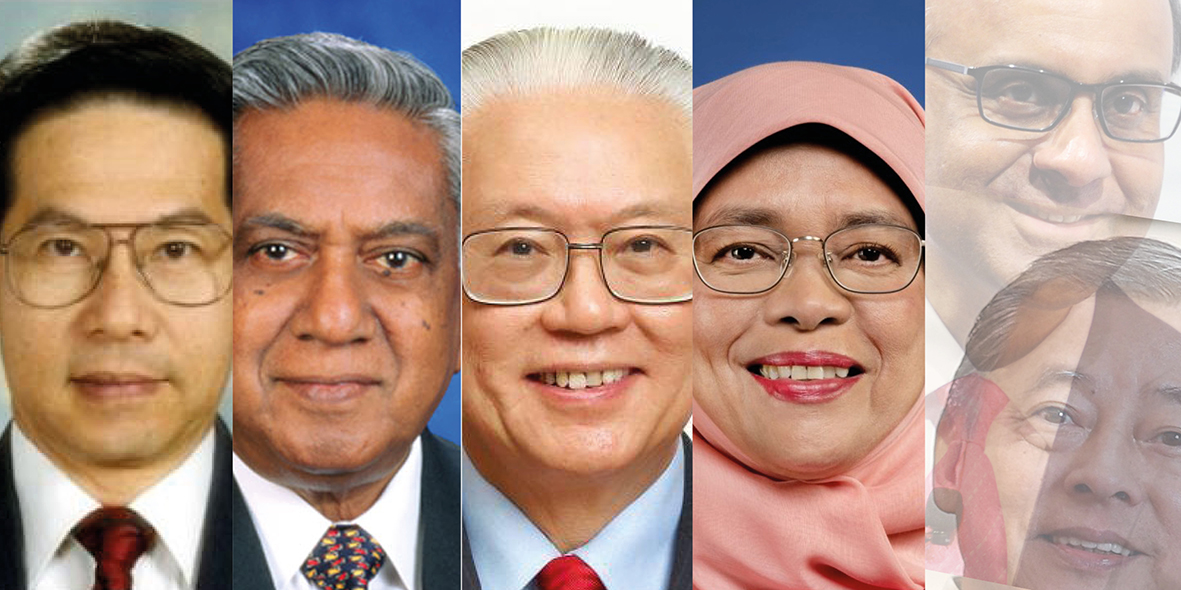SINGAPORE: Academics Kevin Tan and Cherian George are set to shed light on the origins, evolution, and challenges surrounding Singapore’s elected presidency, as the question of whether the president can act as a check to the Government continues to dominate national discourse as the next presidential election looms.
While many ordinary citizens see the role of the President as a figure that keeps the Government accountable, prominent figures like Prime Minister Lee Hsien Loong’s wife, Ho Ching and presidential hopeful George Goh Ching Wah have promoted the notion that this duty is not within the remits of the president’s mandate.
Professor Tan, Singapore’s most internationally renowned constitutional law academic, will answer these questions at a Zoom lecture organised by AcademiaSG on Friday (30 June) at 10 pm.
Prof Tan teaches at the Faculty of Law, National University of Singapore and at the S Rajaratnam School of International Studies, Nanyang Technological University, specialising in constitutional and administrative law, the Singapore legal system, international human rights and Singapore legal history.
Having written or edited more than 60 other books on the law, history and politics, Prof Tan co-edited the 1997 volume, Managing Political Change in Singapore: The Elected Presidency.
The lecture, titled “Presidential Expectations: What the Constitution Requires and Politics Demands of Singapore’s Hybrid Head of State,” will be moderated by Professor George.
The lecture aims to explore the intentions behind the creation of the elected presidency and its impact on the country’s political landscape. Drawing on his deep expertise, Prof Tan will illuminate the reasons behind the system’s evolution and its challenges to Singapore’s democratic principles and political landscape.
Announcing the lecture on his Facebook page on Saturday (24 June), Prof George said that participants could expect insights into the historical context, legal framework, and political implications surrounding the elected presidency.
He also indicated that the lecture was conceived to explore how the concept of the elected presidency has deviated from the way it was initially envisioned by Singapore’s founding father, Lee Kuan Yew.
Mr Lee advocated for empowering a highly qualified elected president with additional powers to depoliticize governance as a means to stabilize the political system and reduce the uncertainties associated with parliamentary elections.
However, as time has passed, it has become evident that Lee Kuan Yew’s vision did not unfold as expected. Prof George pointed out that the presidential election has instead become a new arena for political contention, diverting the ruling party’s attention, talent, and political capital away from governance.
This unintended consequence raises questions about the effectiveness of the elected presidency in achieving its intended goals.
Prof George said that AcademiaSG has already received a range of thought-provoking questions from participants, including inquiries about the impact of an uncontested election on Singapore’s democratic principles and the perception of the elected presidency as a contest between the ruling party and opposition.
Prof Tan will also discuss the merits of the Menon Commission’s proposal to appoint a custodial body instead of a President and whether the veteran PAP Minister and presidential hopeful Tharman Shanmugaratnam will become more important than PM-designate Lawrence Wong if elected.
In an earlier Facebook post, Prof George said, “I’m looking forward to moderating this event – a lecture by my old friend and constitutional law scholar Kevin Tan.
“In 1999, Kevin made the seemingly obvious point that Singapore’s presidency had become “confusing” after discretionary powers and direct elections were grafted onto a previously ceremonial and largely symbolic post. Lee Kuan Yew took Kevin to task in Parliament, asserting that the Constitution provided total clarity.”
He said, “Kevin has been proven right. While LKY meant it to serve a stabilising function, and despite the executive branch’s best efforts to temper its impact, the elected presidency has made Singapore’s politics more contentious and unpredictable.
In his lecture and conversation with me, Kevin will trace how the institution has evolved, both in its formal structure and in terms of public expectations. Tan will also reflect on how a possible Tharman Shanmugaratnam presidency might further contribute to the evolving relationship between the President and the Government and people of Singapore.”
The upcoming lecture promises to be an enlightening exploration of the elected presidency, its significance within Singapore’s political system, and its implications for the country’s governance.
Attendees seeking a deeper understanding of this crucial aspect of Singapore’s political landscape are required to register at THIS LINK. The registration form also offers the opportunity to submit questions in advance for Professor Tan to address during the lecture.

